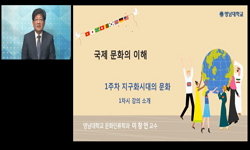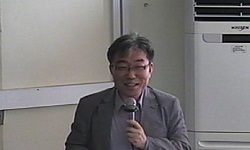This paper suggests a preliminary study on the exploration of identity of Korean music or East Asian music in the era of globalization. It raises the following question implied in its title: “Which alternative ways of thinking can we choose to overc...
http://chineseinput.net/에서 pinyin(병음)방식으로 중국어를 변환할 수 있습니다.
변환된 중국어를 복사하여 사용하시면 됩니다.
- 中文 을 입력하시려면 zhongwen을 입력하시고 space를누르시면됩니다.
- 北京 을 입력하시려면 beijing을 입력하시고 space를 누르시면 됩니다.
https://www.riss.kr/link?id=A100400546
- 저자
- 발행기관
- 학술지명
- 권호사항
-
발행연도
2015
-
작성언어
-
-
주제어
근대성 ; 다중 근대성 ; 대안 근대성 ; 중층 근대성 ; 베버 ; 합리화 ; 지구화 ; 구술성 ; modernity ; multiple modernities ; alternative modernities ; multi-layered modernities ; Weber ; rationalization ; globalization ; orality
-
KDC
600
-
등재정보
KCI등재
-
자료형태
학술저널
- 발행기관 URL
-
수록면
5-30(26쪽)
- DOI식별코드
- 제공처
-
0
상세조회 -
0
다운로드
부가정보
다국어 초록 (Multilingual Abstract)
This paper suggests a preliminary study on the exploration of identity of Korean music or East Asian music in the era of globalization. It raises the following question implied in its title: “Which alternative ways of thinking can we choose to overcome the limitations of the Western modernity issues?” It has been challenged since the late 20th century the Western discourses on unilinear modernization based on Max Weber’s theory of rationalization. It is becoming more obvious that modernity can never be traced any more in a Eurocentric way, particularly sincethe 1990s, along with the globalization, having shed light on the characteristic processes of modernization in various areas of the world(e.g. in East Asian or Latin American countries), The academic issues of global history and multiple modernities raised by some groups of historians and sociologists such as Shmuel N. Eisenstadt and Jurgen Osterhammel have already suggested great implications for this. Those alternative modernities theories argue that the concept of modernity is not in the singular form but plural, and it has appeared not as a single cultural paradigm led by the West but as complex features intermingled with various civilizations. In this paper I will focus on Multilayered Modernities theory suggested by a Korean sociologist, Kim Sang-Jun. I will try to superimpose Kim’s theoretical schema on Walter J. Ong’s media anthropological 3 stage schema(primary orality, literacy and secondary orality) and to explore the ‘aural subject’ both in the ‘global modernity’(by Kim) and in the ‘secondary orality’(by Ong).
동일학술지(권/호) 다른 논문
-
진양 『악서』공후조 도설(圖說)에 나타난 공후 명칭의 혼용 문제 분석
- 세계음악학회
- 조석연 ( Seog Yeon Cho )
- 2015
- KCI등재
-
과학혁명기와 근대 이행기에 표출된 서양예술음악의 사상과 이론: 사변과 과학의 공존
- 세계음악학회
- 박윤경 ( Yoon Kyung Park )
- 2015
- KCI등재
-
- 세계음악학회
- 박미경 ( Mi Kyung Park )
- 2015
- KCI등재
-
- 세계음악학회
- 김난희 ( Lan Hee Kim )
- 2015
- KCI등재
분석정보
연관 공개강의(KOCW)
-

Tradition and Modernity and Korean Political Philosophy
K-MOOC 성균관대학교 K학술확산연구센터 Bi hwan Kim, Yutang Jin, Ji young Moon, Sang bok Ha, Baldwin Wong, Kyung rok Kwon, Zhuoyao(Peter) Li, Sung moon Kim, Jun tae Kim -

Tradition and Modernity and Korean Political Philosophy
K-MOOC 성균관대학교 K학술확산연구센터 Bi hwan Kim, Yutang Jin, Ji young Moon, Sang bok Ha, Baldwin Wong, Kyung rok Kwon, Zhuoyao(Peter) Li, Sung moon Kim, Jun tae Kim -

정치와 사회
한양대학교 윤근로 -

국제문화의 이해
영남대학교 이창언 -

현대사회와 철학
한국외국어대학교 김성우





 KCI
KCI KISS
KISS

